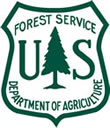The Integrative Biology Department at UTSA, in partnership with the U.S. Forest Service (USFS), has created an outreach program that includes visits to elementary school classrooms and summer camps. The program seeks to engage participants with opportunities for hands-on scientific discovery and inspiration with activities designed around monarch butterflies. UTSA and the USFS are active in monarch research and federal programs for the conservation of monarch butterflies.
Lessons are delivered by UTSA faculty and students through the Educating Youth in Environmental Science (EYES) Program. The mission of the program is to foster and promote interest in ecology in third to fifth grade students and teachers in the San Antonio area.
Our goal is to bring basic concepts in monarch biology, ecology, and conservation to students in the San Antonio area. Lessons will provide hands-on monarch butterfly education and generate interest in wildlife conservation efforts in Texas.
We visit elementary schools to discuss complete and incomplete metamorphosis, migration, and the importance of milkweed. A small butterfly habitat enclosure is provided to each classroom visited; the enclosure contains a milkweed plant and a monarch caterpillar that the students can watch grow and metamorphose into an adult monarch butterfly that will be released outdoors.
During the summer, we offer week-long day camps focused on monarch butterfly ecology as well as week-long day camps focused on hydrology. These camps are held at UTSA's main campus and are open to kids 6-14 years old.
Interested in EYES?
If you are a teacher or educator interested in participating in the EYES program, or if you have any questions, please contact Julian Chavez or Fernando Martinez.
Funding
This research project is funded through the USDA USFS Southern Research Station.
The Southern Research Station conducts forestry research that emphasizes measuring and monitoring forest resources; understanding ecosystem structure, function, and processes; managing resources for sustained and enhanced productivity; and protecting environmental quality. The Station conducts forestry research in the 13 Southern States: Alabama, Arkansas, Florida, Georgia, Kentucky, Louisiana, Mississippi, North Carolina, Oklahoma, South Carolina, Tennessee, Texas, and Virginia.




